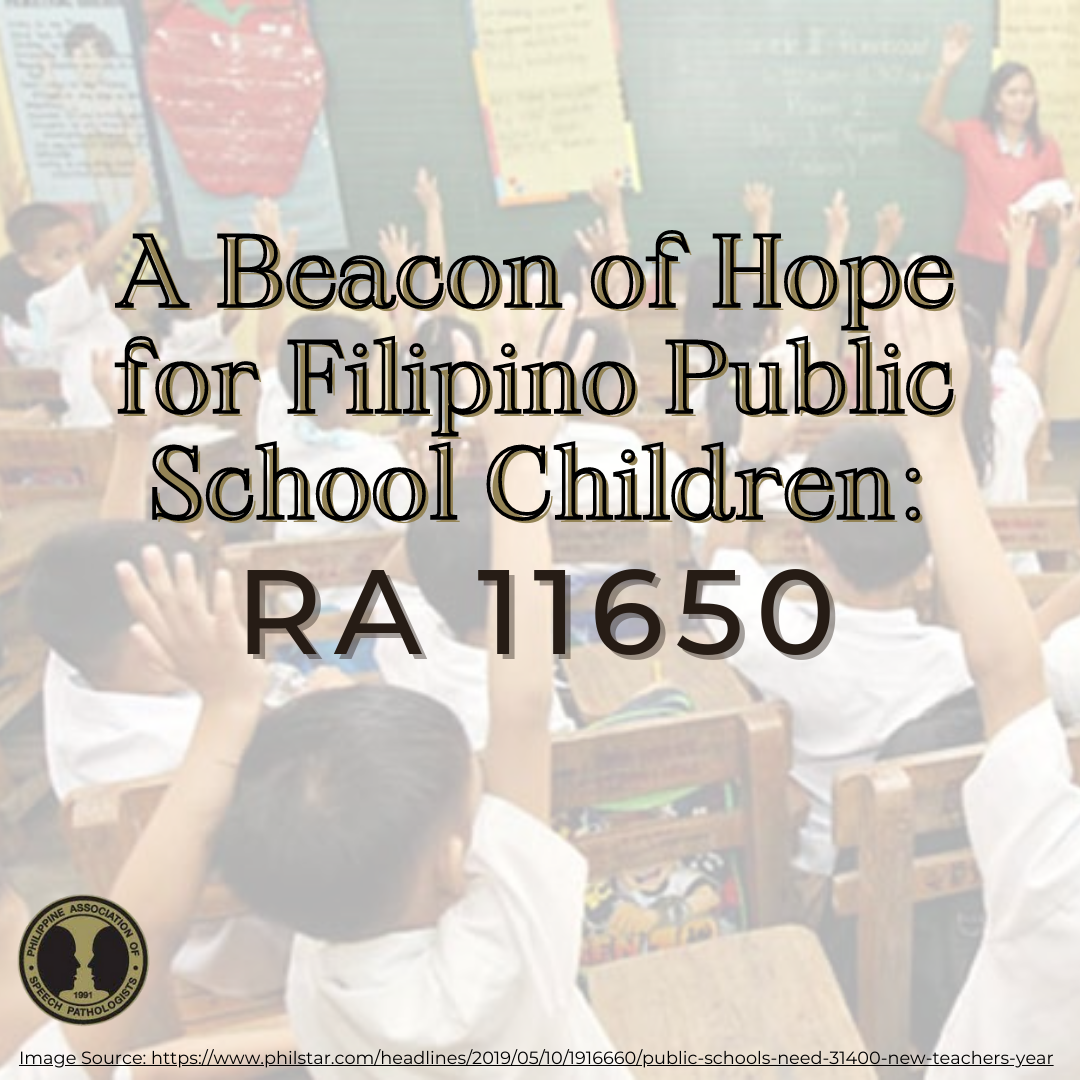
On March 11, 2022, RA 11650: An Act Instituting a Policy of Inclusion and Services for Learners with Disabilities in Support in Inclusive Education, Establishing Inclusive Learning Resource Centers of Learners with Disabilities in all School Districts, Municipalities and Cities, Providing for Standards, Appropriating Funds Therefor, and For Other Purposes was approved and signed into law.
What is RA 11650 all about? This law states that all public schools nationwide are required to identify learners with special needs and provide these learners with free basic and quality education. It also mandates that all cities and municipalities have at least one Inclusive Learning Resource Center (ILRC). An ILRC is a physical or virtual center that provides teaching and learning support through appropriate, accessible, and gender-sensitive materials.
This is in line with the country's efforts to eliminate barriers that prevent learners from reaching greater heights through accessible and quality education. This applies to all learners, with or without disabilities.
How will full implementation of this law contribute to public education in the Philippines? Learners with disabilities are often overlooked in public education. This results in low academic competence for these learners, making them less able to live full and meaningful lives. The law provides the resources to allow students with disabilities to be provided with individualized learning programs based on their current skills and needs, within the school setting.
Speech-language pathologists, occupational therapists and other professionals are needed to support the efforts of each ILRC. Implementation of the law mandates salaries and other benefits for these therapists.
Filipino SLPs share the responsibility of promoting public awareness regarding the conditions that challenge the ability of learners with special needs to communicate. With the passing of this law, the SLPs can play an important role in implementing the act nationwide, such as taking part in creating course outlines for subjects that aim for inclusion, contributing to materials that are available in the ILRCs, and ensuring the access to information of learners with disabilities through different types of media. The active involvement of SLPs in these programs will hopefully also make way for the practice of school-based SLPs in the Philippines, making it easier for children in school to receive needed support.
It is true that it may not be easy to achieve full implementation. The Philippine education system in general is in need of resources in order to effectively provide primary and secondary education to Filipino children. This additional effort to respond to children with special needs within the school system is a further demand. Is it worthwhile? The law fosters a more inclusive society, in which disability is not seen as a barrier but a strength. And it makes it possible to provide a holistic learning environment for every Filipino student. The law influences the development of a more inclusive educational system that addresses every child’s right to equitable and quality education, particularly learners with disabilities. It is a milestone in the Philippine education system.
Kudos to our legislators. We look forward to the full implementation of RA 11650.
References:
ChildHope Philippines. (2021, September 1). Education Issues in the Philippines: The Ongoing Struggle. https://childhope.org.ph/education-issues-in-the-philippines/
Official Gazette. (2022, March 11). Instituting a Policy of Inclusion and Services for Learners with Disabilities in Support of Inclusive Education Act 2022. https://www.officialgazette.gov.ph/downloads/2022/03mar/20220311-RA-11650.pdf
Save the Children. (n.d.). Save the Children Statement on the Enactment of RA 11650: Inclusive Education. https://www.savethechildren.org.ph/our-work/our-stories/story/save-the-children-statement-on-the-enactment-of-ra-11650-inclusive-education/
Isinulat nina: Martin Arzadon, Richelle Asis, Vyella Salao, Jean Tolentino